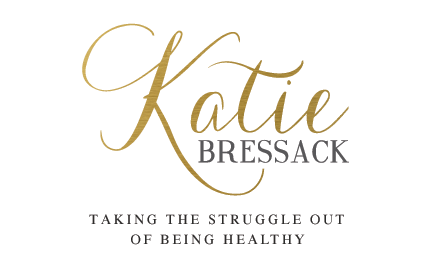Perimenopause: Three Ways To Support This Hormonal Change
Women read and talk a lot about menopause, but what about the years and hormonal changes that lead up to menopause? Perimenopuase is an important hormonal stage that can last up to two to ten years before you actually reach menopause, the life stage defined by a full year without a period. Today on the blog perimenopause: three ways to support this hormonal change.
Unfortunately, many of us haven’t received the education necessary to help us have an easeful transition during this phase of life. So much of the information we read has led us to think we are going to have crazy hot flashes and uncontrollable weight gain. This doesn’t have to be your new reality, because there are lots of things we can do to support you throughout perimenopause.
I have worked with so many women who have supported their hormones with diet and lifestyle shifts and have had a seamless transition unlike so many of the stories I hear! As I say about everything hormonal, if you have information and support, it doesn’t have to be a horrible experience.
Our 40’s and 50’s can be a difficult time in our lives because we are at a crossroads. Many of us are still taking care of our children, but also caring for our parents who are needing a little bit more support as they age. Plus, the combined stress from our careers can take a toll on our health if we aren’t taking time to support our bodies with eating for our hormones, sleep and stress management.
The most common thing I see during perimenopause with my clients is estrogen dominance, which means that you have more estrogen in relation to progesterone in your body. This is very common if you are not ovulating every single month, even though you are still having regular periods. If you are not ovulating your body is not producing progesterone, which is our calming hormone and without that we can start to experience heavier periods, weight gain and sleep issues.
Symptoms Of Perimenopause
So let’s dig in! Symptoms of perimenopause can start in our late 30’s, but just because we are in this hormonal stage doesn’t mean we are no longer fertile, it just means that there are hormonal shifts starting to happen. I had my twins a week after I turned 41. Perimenopause is simply the transitionary stage leading up to menopause. You may start to experience the following perimenopause symptoms.
- Increased anxiety
- Having a more difficult time coping and managing stress
- Insomnia. Either you have a difficult time falling asleep, feeling wired but tired, or seem to be waking up around 3-4 in the morning and unable to fall back to sleep
- Weight gain, especially in the stomach and thighs and what you used to do for weight management no longer works
- Hot flashes and night sweats
- Lower sex drive
- Painful sex
- Breast tenderness
- Fatigue
Perimenopause: Three Ways To Support This Hormonal Change
Here are three things you can start doing today to help you get a better understanding of your body, your hormones and ways you can start adding in specific foods to help support your hormones during perimenopause.
Track your cycle
Don’t rely on an app, start taking your basal body temperature every single morning as soon as you wake up and check your cervical mucus to see if you are still ovulating. Tracking your temperature and your cervical mucus helps you get a deeper understanding about the length of your cycle, how long your follicular phase and luteal phase are, plus what’s up with your period.
You can use an app to write everything down to keep track, just don’t rely on an app to tell you when or if you have ovulated because the only real way to know that is with your basal body and cervical mucus.
Take notice of your period; is it getting heavier or lighter? Does it look like mashed up blueberries? Are your periods getting further apart (your cycle is getting longer or shorter). Take a few minutes every day to start to track so we can actually understand what is going on with your body and with your hormones during perimenopause.
Include Enough Magnesium
Magnesium is responsible for over 300 different biochemical reactions in the body and is vital for hormones. It’s the anti-stress mineral so eating foods that contain magnesium like cacao (chocolate), beans, lentils, nuts, seeds, leafy greens, and whole grains are important.
You can also take a daily magnesium supplement that can help maintain blood sugar levels, helps eliminate excess estrogen from the body and helps stabilize melatonin production in the body which is essential during perimenopause. Check out my blog post the benefits of magnesium for your hormones for additional information.
Include More Cruciferous Veggies Into Your Diet
Cruciferous vegetables like broccoli, cauliflower and Brussel sprouts are extremely helpful to support your liver as it removes excess estrogen and toxins from the body which is essential for supporting our hormones all the time, but especially during perimenopause.
These vegetables contain DIM, or diindolylmethane, which is the active ingredient in cruciferous vegetables; it promotes proper hormone metabolism and helps improve estrogen/progesterone balance which is key for supporting our hormones. Try to include more of these into your diet along with dark leafy greens.
Perimenopause Three Ways To Support This Hormonal Stage Next Steps
By tracking your cycle and including more magnesium rich and cruciferous vegetables into your diet you are taking the first steps to supporting and eating for your hormones for perimenopause. Use a journal to start tracking how you are feeling, your digestion, your sleep, how you cope and manage with stress to see how what you are doing is making an impact on the way that you feel every single day. Stay tuned for more blog posts on how you can support your body and hormones during perimenopause.
I’d love to hear your thoughts!
- Was this post helpful for you? Or, do you have any additional questions? Comment below and let me know!
- Share with your friends, forward this along or post on social. You can also join me on Instagram and in my private FB group
- Want a deeper look into your hormones? Take my quiz to see what foods might be helpful to add into your diet
- Sign up for my newsletter full of women’s health tips and get your FREE guide, the five steps to take today to help balance your hormones
Medical Disclaimer
Information in this post and on this web site is provided for informational purposes only. The information is a result of practice experience and research by the author. This information is not intended as a substitute for the advice provided by your physician or other healthcare professional or any information contained on or in any product label or packaging. Do not use the information on this web site for diagnosing or treating a health problem or disease, or prescribing medication or other treatment. Information and statements regarding dietary supplements have not been evaluated by the Food and Drug Administration and are not intended to diagnose, treat, cure, or prevent any disease. Always speak with your physician or other healthcare professional before taking any medication or nutritional, herbal or homeopathic supplement, or using any treatment for a health problem.


.png)
.png)
.png)